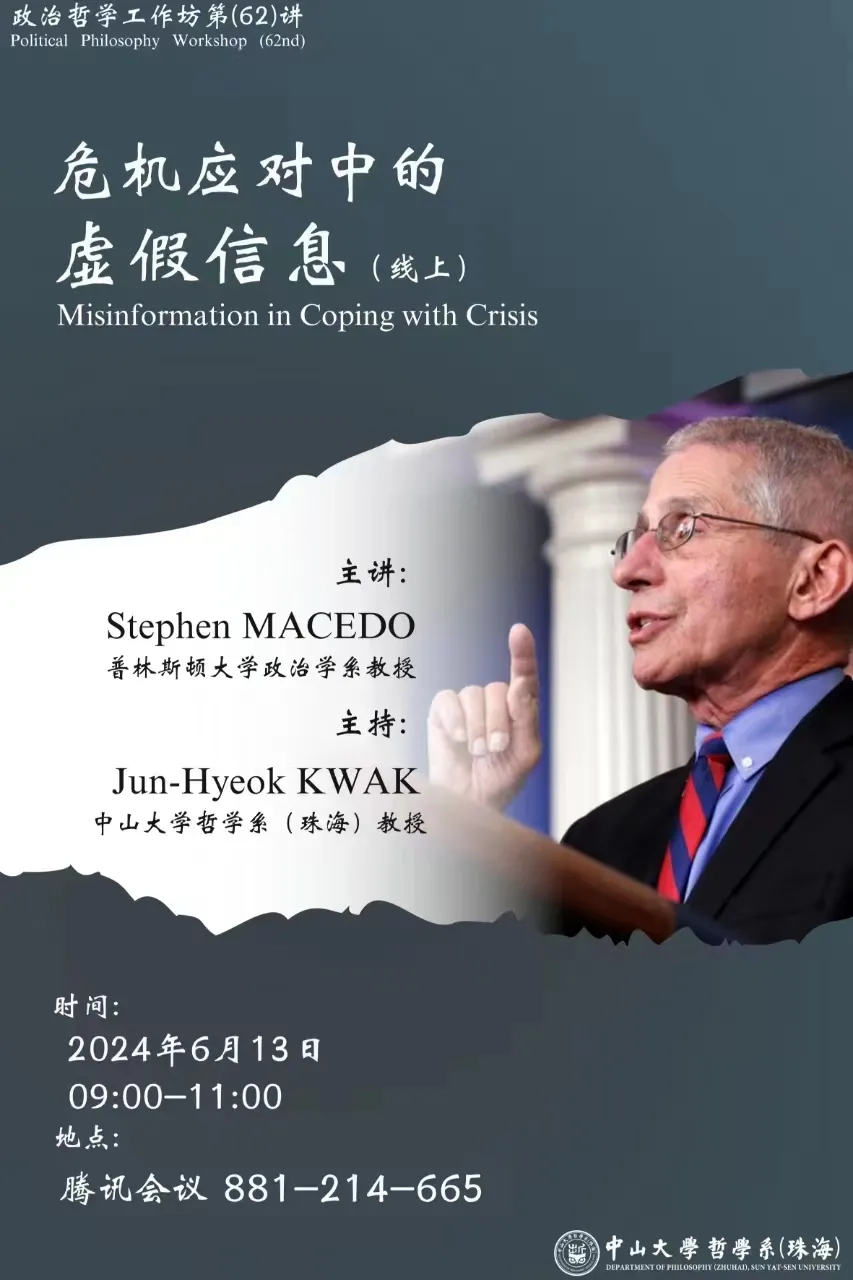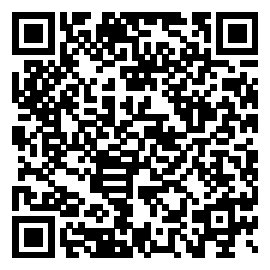学术资讯|政治哲学工作坊第六十二讲:危机应对中的虚假信息
危机应对中的虚假信息

✦ +
+
Political Philosophy
Workshop (62nd)
Organizer:
Department of Philosophy (Zhuhai)
Sun Yat-sen University
Topic:
Misinformation in Coping with Crisis (Virtual)
Speaker:
Stephen MACEDO
Professor, Department of Politics, Princeton University
Moderator:
Jun-Hyeok KWAK
Professor,Department of Philosophy (Zhuhai), Sun Yat-sen University
Time:
June 13th
09:00-11:00
VOOV:
881-214-665
ABSTRACT:
The novel coronavirus confronted us with questions as old as democracy: what is the proper role of experts in a system of popular self-rule? How much power should democracies cede to experts, and how should it hold them accountable? Can it be justified for experts in public health, amidst an existential crisis, to simplify messaging when saving lives requires changes in public behavior? I will discuss those issues and set them in a wider context. For decades scholars have warned that elite groups have tendencies toward groupthink and mutual reinforcement of biases, fed by a self-righteous sense of moral and intellectual superiority.
There are parallels between elite hubris under Covid and earlier episodes of US policy failure such as Vietnam and the second Iraq war. In all these instances, experts and elite policy makers may have sincerely believed that they were operating in the public interest, but it is not hard to see that their actions were admixed with conflicts of interest, the desire to avoid blame and to protect reputations, and to preserve personal and institutional power and privilege. Under Covid, too many journalists and academics were unwilling to ask hard questions – or even to tolerate their being asked -- and too many citizens hunkered down in partisan echo chambers. Experts need to be checked and balanced by those representing the interests and perspectives of ordinary people.
✦ +
+
政治哲学工作坊第(六十二)讲
主办:
中山大学哲学系(珠海)
主题:
危机应对中的虚假信息 (线上)
主讲:
Stephen MACEDO
普林斯顿大学政治学系 教授
主持:
Jun-Hyeok KWAK (郭峻赫)
中山大学哲学系(珠海)教授
时间:
2024年6月13日
09:00-11:00
地点:
腾讯会议
881-214-665
摘 要:
西方社会在疫情期间直面和民主同样古老的问题:
来源 | 哲珠新媒体
海报 | 欧阳欢
文稿 | 花晓雅
编辑 | 王志远
初审 | 韩 珩
审核 | 卢 毅
审核发布 | 屈琼斐


